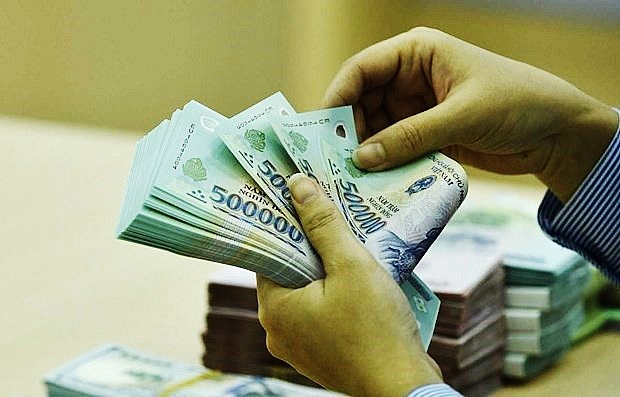Increased inspections to improve corporate bond market
 |
| Increased inspections to improve corporate bond market, photo VNA |
The State Bank of Vietnam (SBV) last month directed the Banking Inspection and Supervision Agency to increase the inspection and examination of the situation and investment activities of corporate bonds of credit institutions.
Techcombank, TPBank, and SHB are the top three banks that are susceptible to scrutiny since they own the biggest amount of corporate bonds as of the end of Q1.
The action is being carried out with the intention of putting into effect instructions given by the prime minister to improve the administration of the stock market and the inspection and examination of the corporate bond market.
A total of eight commercial banks are on the list of institutions that the Banking Inspection and Supervision Agency will examine. By the end of April, the regulatory body had carried out inspections at seven banks, with the exception of BaoViet Bank due to the fact that the Ministry of Finance had already contacted this institution.
According to the information provided by FiinPro, an application-based platform providing financial database, on the financial accounts of the eight banks that were subjected to an inspection, five of the eight saw a rise in the value of the bonds that were held by financial organisations during the first quarter.
As of March 31, Techcombank had a total of $333.8 billion worth of corporate bonds, representing an increase of 22.2 per cent compared to the end of 2021. TPBank boasted $120.1 million, a growth of 48.4 per cent. SHB comes in third with an increase of 169 per cent. SeABank has fallen to the bottom of the list of banks that were audited, equivalent to a decrease of 88.7 per cent.
Military Joint Stock Bank (MB) and VPBank are the two main holders of corporate bonds in the market, following Techcombank’s lead. However, none of these banks fall within the inspection category. The number of corporate bonds that MB possessed in Q1 witnessed an increase of 20 per cent compared to the beginning of this year.
According to a report last week released by the National Assembly Economic Committee (NAEC), only $626.5 million of corporate bonds was newly issued in the first quarter, including both private placements and public offerings. Issuance was mostly concentrated in January. After the Tan Hoang Minh scandal and the subsequent corporate bond crackdown, new issuance in April dropped by 30 per cent. Banks and real estate were among the largest issuers in 2021, amounting to 69 per cent of the total.
SSI Securities estimated that the average issuance term ranged around 3.5-4 years in both 2021 and so far this year. Average issuance yields were significantly different between the two above periods, mostly from issuance structure. In 2021, the average issuance yield of corporate bonds came to 7.9 per cent, even 1-2 per cent lower than medium-term lending rates, whereas first-quarter yields were at 9.67 per cent, with just over half of the issuance being from the real estate sector.
A report from the NAEC informed that banks and securities companies remained the largest investors in the primary corporate bond market in 2021 at 37.9 and 34.5 per cent respectively. Professional retail investors only accounted for 5.4 per cent of corporate bond investors. In the secondary market, credit institutions held 45.8 per cent of total bonds in custody as of the end of 2021, while individual investors held 30.6 per cent.
The NAEC also believes that there could be a downside risk for the coming years ahead, noting that a large number of bonds are coming due in 2023 and 2024.
SSI analyst Trinh Thai said, “According to our in-house calculation, expired bond volume in 2023 and 2024 might reach 40 per cent of current outstanding bonds and therefore create pressure for companies, especially real estate, to restructure funding plans.”
A circular in 2021 effectively restricted banks from purchasing bonds issued for the purpose of restructuring purposes. On the current trajectory, it may be difficult to avoid default risk, unless companies take proactive action, Thai added.
“However, the recent corporate bond crackdown and the long-awaited amendment of Decree No.153/2020/ND-CP in 2020 on private placement and trading of privately-placed corporate bonds in the domestic market, and offering of corporate bonds to the international market, have made firms reluctant to issue bonds in such an environment,” she noted.
Le Quang Minh, head of Research at Mirae Asset Securities, told VIR, “The rigorous regulation on corporate bond issuance is a favourable indicator for the broader market. Investors’ confidence would be significantly enhanced as the Vietnamese regulators are ratcheting up stringent controls.”
What the stars mean:
★ Poor ★ ★ Promising ★★★ Good ★★★★ Very good ★★★★★ Exceptional
Related Contents
Latest News
More News
- Private capital funds as cornerstone of IFC plans (February 20, 2026 | 14:38)
- Priorities for building credibility and momentum within Vietnamese IFCs (February 20, 2026 | 14:29)
- How Hong Kong can bridge critical financial centre gaps (February 20, 2026 | 14:22)
- All global experiences useful for Vietnam’s international financial hub (February 20, 2026 | 14:16)
- Raised ties reaffirm strategic trust (February 20, 2026 | 14:06)
- Sustained growth can translate into income gains (February 19, 2026 | 18:55)
- The vision to maintain a stable monetary policy (February 19, 2026 | 08:50)
- Banking sector faces data governance hurdles in AI transition (February 19, 2026 | 08:00)
- AI leading to shift in banking roles (February 18, 2026 | 19:54)
- Digital banking enters season of transformation (February 16, 2026 | 09:00)

 Tag:
Tag:



















 Mobile Version
Mobile Version